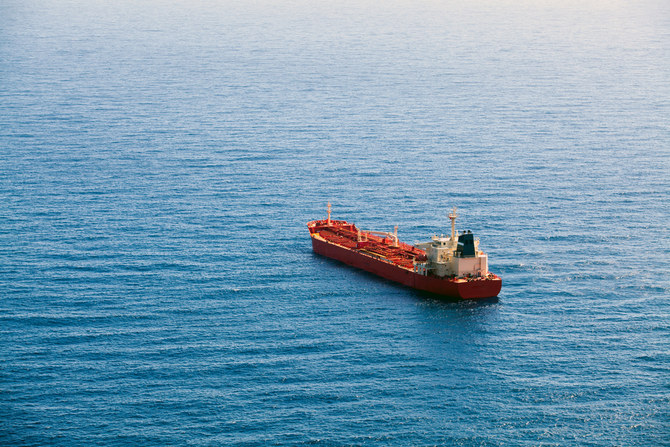
Abide by international laws to deal with refugees rescued near Andaman Islands, Human Rights Watch says
New Delhi-based Rohingya Human Rights Initiative (RHRI) demanded that the Indian government “grant a status of refugees to the stranded people”
NEW DELHI: Human Rights Watch (HRW) on Saturday called on India to abide by international laws in protecting refugees a day after New Delhi said it had rescued 81 Rohingya stranded in Indian waters.
“India should abide by its international obligations to offer all protection and access to the UN refugee agency,” Meenakshi Ganguly, South Asia director of the Human Rights Watch (HRW), told Arab News.
On Feb. 11, nearly 90 Rohingya from the Cox’s Bazar refugee camps in Bangladesh boarded a small boat for Malaysia, Anurag Srivastava, India’s Foreign Ministry spokesperson, said in a statement.
Four days later, on Feb. 15, “the boat’s engine broke down, and the boat drifted toward the southern Indian islands of Andaman and Nicobar.”
Eight people lost their lives, and one drowned.
Two days later, the UN High Commissioner for Refugees (UNHCR) appealed to “all governments to deploy their search and rescue capacities and promptly disembark those in distress.”
On Friday, New Delhi announced that it had rescued the stranded refugees.
“When we learned of the boat in distress, we immediately dispatched two coast guard ships to provide food, water and medical assistance to the occupants of the boat. Seven of them were administered IV fluids,” the statement said.
It added that since most of “the occupants of the boat have ID cards issued to them by the UNHCR office in Bangladesh,” New Delhi was in talks with Dhaka “to ensure their safe and secure repatriation.”
The HRW, however, said that India needed to do more to abide by its “international obligations” and should not “pass the buck.”
India is not a signatory to the 1951 Refugee Convention, which mandates refugee rights and state responsibilities to protect them. Nor does it have any domestic law to protect the more than 200,000 refugees it currently hosts, including some Rohingya from Myanmar.
“Whether it is India, Thailand, Malaysia, Bangladesh or other countries in the region, governments need to protect the Rohingya refugees instead of trying to pass the buck,” Ganguly told Arab News.
She added that the “primary responsibility” for the plight of the Rohingya lay with Myanmar and that “these governments should join the international community to ensure that the Rohingya can return to their homes voluntarily, with safety and dignity.”
Meanwhile, the New Delhi-based Rohingya Human Rights Initiative (RHRI) demanded that the Indian government “grant a status of refugees to the stranded people.”
“Rohingya stranded in the Andaman and Nicobar Islands are not Bangladeshi; they are hapless refugees. India, being a big country, should shelter these stranded people till the situation normalizes in Myanmar,” RHRI founder Sabber Kyaw Min said.
Min was referring in part to a coup d’etat by the Myanmar military on Feb. 1, which has led to the declaration of a state of emergency by the ruling regime and widespread, nationwide protests.
He called on the Indian government to disclose the refugees’ whereabouts.
“I was in touch with some of the refugees and their relatives till Wednesday, but since then their phones have been off. Rohingya are suffering. New Delhi should demonstrate large-heartedness in accommodating the refugees in the same way Bangladesh has demonstrated,” Min added.
The Andaman and Nicobar Islands are a federally administered archipelago lying between the Bay of Bengal and the Andaman Sea. Both Myanmar and Thailand have coastlines along the eastern edge of the sea.
In 2012, some Rohingya refugees were rescued from near the islands and provided medical care and attention, before being sent back to Myanmar.
However, ever since Prime Minister Narendra Modi-led regime assumed office in New Delhi, India has taken a harder line over providing admission and shelter to any Rohingya refugees.
Denis Giles of the Andaman Chronicle, an English newspaper based in Andaman’s capital Port Blair, was the first to break the story about the stranded refugees and alert the world about the crisis.
Giles, who covered the Rohingya rescue operations in 2012, said that this time “there is a big difference.”
“They were properly treated, and the administration used to ask social organizations to help them out, but now no one wants to talk about that. There is a hush now,” Giles told Arab News.
“Earlier, we would know where they are being kept, which hospitals they are being treated at but this time, we are completely in the dark.”
Bangladesh is hosting more than 1.1 million Rohingya who fled from persecution at the Myanmar military’s hands in the Buddhist-majority country.
The Rohingya endured decades of abuse in Myanmar, beginning in the 1970s when hundreds of thousands sought refuge in Bangladesh.
Between 1989 and 1991, an additional 250,000 fled when a military crackdown followed a popular uprising and Burma was renamed Myanmar. In 1992, Bangladesh and Myanmar agreed on a repatriation deal under which thousands of Rohingya returning to Rakhine.
The Rohingya exodus to Bangladesh resumed in August 2017 following a military crackdown on the ethnic minority group.
According to the UN, by the end of 2020, 866,457 Rohingya refugees had been registered at 34 camps in the Cox’s Bazar district of Bangladesh due to a joint initiative by Dhaka and the UNHCR.










